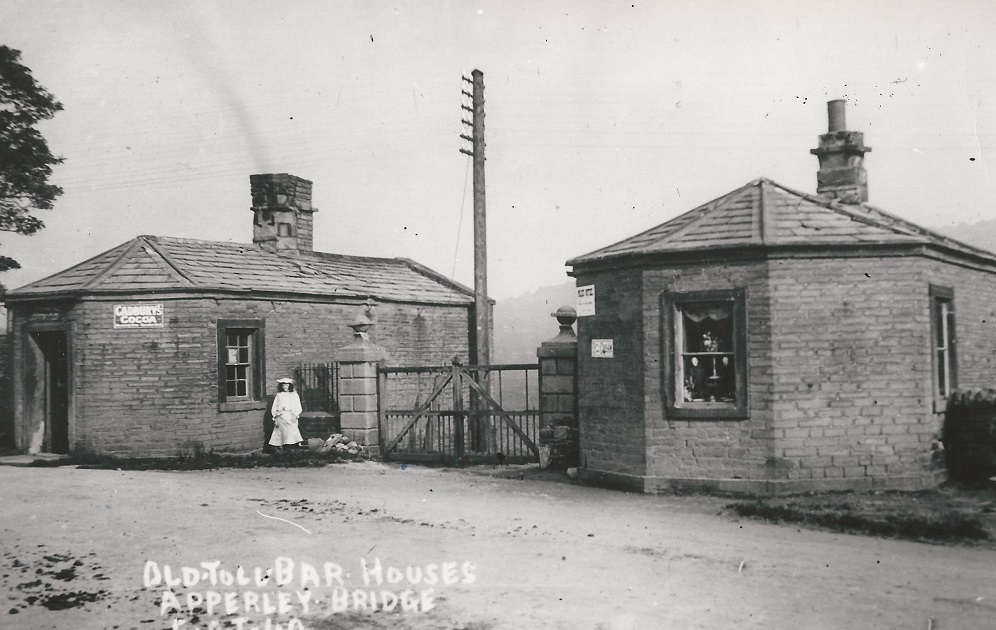| Title | All History Matters |
| Date | 1800 – 1850 |
| Location | Aireborough |
| Written By | Carlo Harrison |
| Comment | A selection of historical pieces taken from the Archives held in Yeadon Town Hall. |
1800 – 1850
Wool in Carlton ( I think this was written c1880 and talking about late 1700’s to early 1800’s)
The wooler trade is not now carried out in Carlton the agricultural industry entirely prevailing.
But although the manufacture of cloth is not in these days an element of Carlton trade it seems that in the memory of old William Cooper who died at the advanced age of 99 that cloth had been made & tentered at Carlton.
The wool was dyed in a dye-house near the defunct Carlton Workhouse & the field in which it was situate still retains the name of Leadhouse Garth.
The cloth was milled at Harewood & brought on horseback to tenter at West Carlton.
The tenter’s used to stand in front of the house lately occupied by William Downs & the locality is still known as Tenter Croft.
Soap was scarce in those days but a good substitute was found in brackens which were extensively used for fulling purposes.
6th October 1809.
This follows an unfortunate person who became chargeable to the Overseer for the Poor.
It was reported that the finances of the Overseer were very narrow & owing to depression the assessment difficult to collect.
Many of the residents of Yeadon were compelled to seek relief. In some cases they were sent to the Workhouse which at that time was owned jointly by the Townships of Yeadon & Idley.
When a person sought help from the Overseer he went along with the Appraiser to value the home.
One person seeking relief was a certain Widow Hall. Here then is the contents of her home, as taken by Cornelius Appleyard, Overseer of the Poor & value placed upon it by John Harrison the Appraiser, on the 6th October 1809:
One loom complete £2 10s; bobbins & shuttles 6s; Jenny 36 spindles £3; a pair of bartrees 7s 6d; wash tub -; bobbin wheel 1s; a sley set (54) 8s; five gear shafts 2s 6d; one basket 1s; frying pan 1s; one bed 12s 6d; three chairs 15s;one bed £2; three chairs 5s; one oven 7s 6d; two tables 5s; one fire grate 5s; set of fire irons 2s 6d; one chest 3s; one delf case 10s 6d;
No crockery or cutlery is mentioned in the account & it is possible they are included in the Delf case
The Gill Mill occupied by Samuel Bentley, scribbling & slubbing had a 6hp steam engine & water Power.
The mill started in 1819 employed 21 workers, 5 under 10 years of age.
5th December 1838.
Another person who became chargeable is a William Marshall whose home seems to have more articles of furniture.
In this case the goods are not valued.
The persons who took the memorandum were John Parkinson, the constable of the town & William Bakes the town clerk on the 5th December 1838 & listed as follows:-
One loom & urine tub, two sleys, 18 gear shafts, 1 bellows; one bed & bedding; one table and pot case; three pot dishes, 14 plates, one oak bread creel; one wood box; one tin caddy; sundry little articles over fireplace; one bakestone; one bed teaster (warming pan); one kitchen table; three round tables; one old chest; one fixture cupboard; six chairs; one water can; two butter bowls; sundry pots and pans; one set pot; two tunmels; one chest of drawers; fire irons; one range in parlour.
No floor covering is mentioned in either case. The floors of some of the rooms would be flagged & sand scattered inside a border of pottery mould. The hearth would also be whitened with the same material.
This then is the account of what is described in the Town’s Record’s as Widow Hall’s chattels & the same description is given to William Marshall’s.
The inclusion of the bakestone in Williams goods also tells us that he made oatcake, or, as it is called in Yeadon, havercake.
Newspaper Article from the Leeds Intelligencer dated March 7th 1846
RECRUITING AT YEADON
The quiet village of Yeadon has this week been enlivened by the sound of fife & drum, beating up for recruits, but, we understand with no success.
Although from the depression in trade, hundreds of young men out of work, not one was to be caught.
And, says a correspondent, the conduct of the recruiting party says little for their morality. Soon after entering the town they got drunk, and were turned out of one public house for misconduct.

